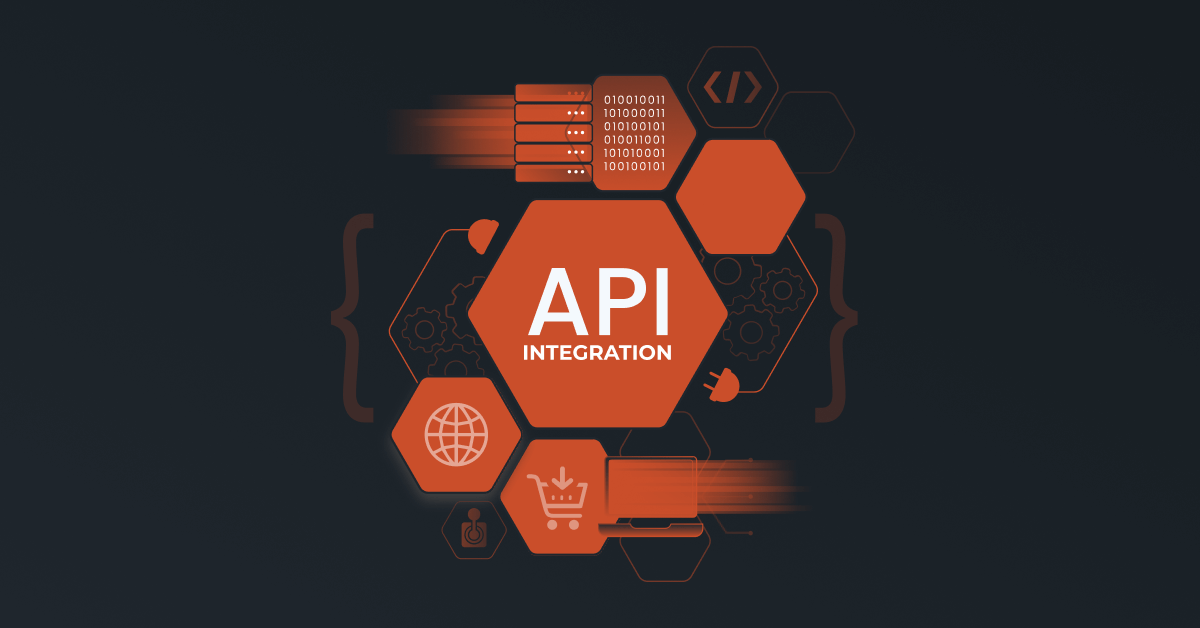
The Importance of API Integration in E-Commerce Platforms: Connecting Systems for Seamless Operation
Introduction:
In
the fast-paced world of e-commerce, businesses need to operate efficiently and
provide a seamless shopping experience for customers. One of the most effective
ways to achieve this is through API (Application Programming Interface)
integration. By connecting different systems, services, and platforms, APIs
enable e-commerce websites to function smoothly and keep pace with customer
demands. This blog explores the importance of API integration in e-commerce,
its key benefits, and how it can streamline operations across the entire
business.
What Is API Integration in E-Commerce?
API
integration allows different software systems and applications to communicate
with each other, share data, and perform tasks automatically. In an e-commerce
context, APIs connect various systems, such as payment gateways, inventory
management tools, customer relationship management (CRM) platforms, shipping
carriers, and marketing tools, to ensure smooth and synchronized operations.
Key Benefits of API Integration in E-Commerce:
Enhanced Automation:
APIs
enable automatic updates across systems, such as real-time stock inventory
updates, order processing, and customer notifications, which reduces manual
work and minimizes human error.
Streamlined Customer Experience:
By integrating various services (e.g.,
payments, shipping, customer support), APIs allow for a smooth customer
journey, with quick and accurate order confirmations, payment processing, and
tracking information, all accessible in real-time.
Faster Time-to-Market:
With
APIs, e-commerce businesses can integrate third-party services quickly,
allowing them to launch new features or adapt to new technologies without
having to build everything from scratch.
Improved Scalability:
As
your business grows, APIs make it easier to scale operations by connecting new
tools, systems, and platforms to your e-commerce website without disrupting
existing operations.
API Integration Use Cases in E-Commerce:
Payment Gateway Integration:
APIs
allow for smooth and secure payment transactions by connecting your site to
third-party payment processors (e.g., PayPal, Stripe, and Square), ensuring
quick and safe payment processing.
Inventory Management:
APIs integrate with inventory management
systems to provide real-time stock updates, helping e-commerce businesses avoid
overselling products or running out of stock.
Shipping and Logistics:
APIs connect to shipping carriers (e.g.,
FedEx, UPS, and DHL) for automatic calculation of shipping costs, tracking
numbers, and delivery status, improving order fulfillment efficiency and
customer satisfaction.
Customer Relationship Management (CRM):
APIs
help integrate CRM platforms (e.g., Salesforce) to track customer behavior,
segment audiences, and send personalized marketing messages or promotions.
How API Integration Improves Operational Efficiency:
Data Consistency across Systems:
APIs
ensure that all business systems (sales, inventory, CRM, etc.) are updated in
real time, maintaining consistent and accurate data, reducing the likelihood of
errors or discrepancies between different platforms.
Centralized Operations:
With
integrated systems, e-commerce businesses can monitor and manage all operations
(order processing, customer management, and inventory) from a single dashboard,
improving decision-making and overall efficiency.
Cost and Time Savings:
By
automating tasks like data entry, order processing, and customer
communications, API integration saves businesses valuable time and reduces
operational costs.
Security Considerations in API Integration:
Data Protection:
APIs
enable secure data exchange between systems, but it’s crucial to implement
encryption, authentication protocols (OAuth, API keys), and secure API gateways
to protect sensitive customer information.
Access Control:
Only
authorized systems should have access to your APIs. Proper access controls and
permission settings prevent unauthorized access, reducing the risk of data
breaches.
The Future of API Integration in E-Commerce:
As
e-commerce continues to evolve, API integration will play an even greater role
in providing personalized experiences, supporting Omni channel strategies, and
leveraging technologies like AI, IoT, and voice commerce. E-commerce businesses
that embrace API integration will be better positioned to adapt to changing
consumer expectations and market trends.
Conclusion:
API
integration is essential for modern e-commerce businesses, providing a seamless
connection between systems, improving operational efficiency, and enhancing the
customer experience. By leveraging APIs, businesses can automate processes,
scale more easily, and ensure they stay aheaof the competition. As e-commerce
platforms continue to evolve, embracing API integration will be key to building
a flexible, efficient, and future-proof business.This blog explains how API
integration can enhance e-commerce operations, reduce manual efforts, and
create a more cohesive experience for customers, ultimately leading to
increased business efficiency and customer satisfaction.
Start your online Ecommerce Shop Now!!!
Check
exclusive plans here : https://sysmarche.com
Call
Now : +91 86523 62400 / 88981
41483
